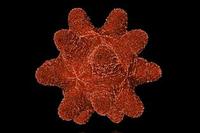-
Defying governor, Mass. officials seek to join Secure Communities

Local law enforcement officials and state lawmakers are increasingly working to circumvent Massachusetts governor Deval Patrick’s decision to opt out of the controversial Secure Communities immigration program; last Wednesday U.S Senator Scott Brown (R-Massachusetts) called on DHS secretary Janet Napolitano to allow the state to join Secure Communities without Governor Patrick’s approval; Under Secure Communities, a detained individual’s fingerprints are automatically scanned and checked against DHS and FBI databases to determine their immigration status
-
-
New Libyan regime to cooperate in Lockerbie investigation
Libya’s new government said that it will cooperate with Scottish prosecutors in their ongoing investigation of the Lockerbie bombing; so far only one man has been convicted in the 1988 bombing of Pan Am Flight 103 over Lockerbie, Scotland which resulted in the deaths of 270 people; Scottish prosecutors are seeking assistance from Libya’s National Transitional Council to gain evidence that could lead to the conviction of others involved in the atrocity; Libya’s interim justice minister Mohammed al-Alagi recently said, “The case is closed,” but later retracted his statement; Scottish authorities said, “The police investigation into the Lockerbie bombing remains open, and the Police should follow the evidence wherever it leads them”
-
-
Pakistan seeks to improve relations with Saudi Arabia, China, as U.S. relations sour
As U.S.- Pakistan relations continue to deteriorate following the clandestine raid that killed Osama bin Laden, Pakistan has sought to improve relations with Saudi Arabia and China to offset the United States rising anger; Pakistan promised China it would root out any Uighur militants hiding out in its territory and promised to hold war games with Saudi Arabia; analysts believe Pakistan is hedging against a potential downgrade in its relationship with the United States; China has long been a close Pakistani ally and the two share a wariness of India and a desire to curb growing U.S. influence in the region
-
-
China teams up with Ukraine to fight terrorism
Last week, top Chinese and Ukrainian security officials agreed to strengthen law enforcement cooperation between the two countries to combat terrorism, drug trafficking, illegal immigration, and trans-national crime; Ukrainian officials said it would work with China to combat cybercrime and other forms of trans-national organized crimes as well as the “three forces of evil” — terrorism, extremism, and separatism; Ukraine also pledged to provide more convenience for Chinese citizens entering and exiting its border; during China’s minister of public security Meng Jianzhu’s visit, the two countries signed cooperation documents
-
-
Pakistan promises to help China combat terrorism
On Monday Pakistani president Asif Ali Zardari pledged his country’s full support in helping China combat terrorism by rooting out Uighur insurgents hiding in its territory; Zardari’s remarks come after a meeting with Chinese state councilor Meng Jianzhu; Zardari promised to bring the two country’s bilateral relations to a new level citing strong support for each other on major international and regional issues; Meng echoed Zardari’s comments and said that the country has always viewed its relationship with Pakistan as one of its diplomatic priorities
-
-
India tells Pakistan to get "serious" on dismantling terror training camps
India’s external affairs minister S. M. Krishna said Pakistan can no longer take a “selective approach” to fighting terrorism and hoped that it will get “serious” in dismantling the terrorist training camps on its soil; “I am sure they (Pakistan) will realize and they have, by now they should have (realized) that terrorism cannot be fought selectively,” Krishna said; he added, “I hope Pakistan gets serious about dismantling all the terror training camps which are existing in the country….We expect that Pakistan will live up to their pronouncements”
-
-
Three arrested in Ireland after car bomb discovered
On Monday, U.K. officials arrested three men after police found a bomb in a car in Northern Ireland; the three men were apprehended in Derry, near the border with the Irish Republic; Chief Inspector Jon Burrow, Northern Ireland’s district commander, said, “I am in no doubt had the device exploded it could have injured or maimed innocent members of the public and it is due to the efficient evacuations set in place in the surrounding areas that no one came to any harm”; military explosives experts were called in to help defuse the bomb
-
-
Six men arrested in U.K. on terrorism charges
On Monday, British authorities arrested six men on charges of terrorism; the men, all between the ages of twenty-one and thirty, are believed to be part of a terror network; four of the men are accused of one count of “engaging in conduct in preparation for terrorist acts,” while the other two are being charged for failing to disclose information about acts of terrorism; the four suspected terrorists allegedly planned a bombing campaign, stated their intention to become suicide bombers, and collected money for terrorism; two of the four are believed to have travelled to Pakistan to receive weapons and explosives training
-
-
Lashkar-e-Taiba co-founders placed on U.S. terror list
On Wednesday the United States announced that it had placed two founding members of the Lashkar-e-Taiba (LeT) terrorist organization on its terror watch list; the United States refrained from sanctioning the Pakistani state or the ISI, its military intelligence agency, despite increasingly heated statements from top U.S. officials; David Cohen, the Treasury Department’s undersecretary for terrorism and financial intelligence described Zafar Iqbal and Hafiz Abdul Salam Bhuttavi as two of LeT’s “most significant leaders”; over the past twenty years, the duo has been responsible for fundraising, recruitment, and indoctrination of operatives; “By targeting the core of LeT’s leadership, today’s action aims to degrade its ability to facilitate its terrorist activities,” Cohen said
-
-
Al Qaeda to Iranian president: enough with the 9/11 conspiracy theories
Al Qaeda, in the latest edition of their online propaganda magazine Inspire, called on Iranian president Mahmoud Ahmadinejad to stop spreading conspiracy theories about the 9/11 attacks; the terrorist group called Ahmadinejad’s remarks about 9/11 “ridiculous”; last week in his address to the UN general assembly, Ahmadinejad said the “mysterious September 11 incident” had been used as a pretext to attack Afghanistan and Iraq; he added, “By using their imperialistic media network which is under the influence of colonialism, they threaten anyone who questions the Holocaust and the September 11 event with sanctions and military actions”; in response, al Qaeda wrote, “The Iranian government has professed on the tongue of its president Ahmadinejad that it does not believe that al-Qaida was behind 9/11 but rather, the US government”; “So we may ask the question: why would Iran ascribe to such a ridiculous belief that stands in the face of all logic and evidence?” the group asked
-
-
Sharp rise in number of holders of security clearances
As of 1 October 2010, the number of Americans holding security clearances was 4,266,091; of those, 1,419,051 federal employees and contractors hold Top Secret clearances
-
-
Belief that others can change could bring peace
Psychologists find that members of groups engaged in conflict are more willing to compromise if they believe people are capable of changing; when researchers presented Israelis and Palestinians with evidence that groups of people are capable of change, the information increased the subjects’ willingness to compromise on key political issues
-
-
Predicting race and ethnicity from irises now possible

Conventional wisdom holds that irises, like fingerprints, are unique to each individual and have little similarities between ethnic groups or gender, but a groundbreaking new study indicates that biometric scanners can actually predict race and gender based on iris texture alone; the study’s findings are important in that it opens new avenues for research that previously were not thought possible
-
-
Connecticut town considers charging centers for power outages
Following Hurricane Irene which left thousands without power up and down the East Coast, a town in Connecticut is considering building several charging stations for residents to power up their hand held electronics during a natural disaster or prolonged power outage
-
-
Living bacteria for perfect encryption system

Researchers have developed fluorescent bacteria that encode secret messages, creating, in effect, a living invisible ink; this method could be harnessed for secret communications as well as for anti-counterfeiting; messages may be encoded by genetically engineering bacteria to produce fluorescent colored proteins, then printing them in a grid
-
More headlines
The long view
Factories First: Winning the Drone War Before It Starts
Wars are won by factories before they are won on the battlefield,Martin C. Feldmann writes, noting that the United States lacks the manufacturing depth for the coming drone age. Rectifying this situation “will take far more than procurement tweaks,” Feldmann writes. “It demands a national-level, wartime-scale industrial mobilization.”
No Nation Is an Island: The Dangers of Modern U.S. Isolationism
The resurgence of isolationist sentiment in American politics is understandable but misguided. While the desire to refocus on domestic renewal is justified, retreating from the world will not bring the security, prosperity, or sovereignty that its proponents promise. On the contrary, it invites instability, diminishes U.S. influence, and erodes the democratic order the U.S. helped forge.
Fragmented by Design: USAID’s Dismantling and the Future of American Foreign Aid
The Trump administration launched an aggressive restructuring of U.S. foreign aid, effectively dismantling the United States Agency for International Development (USAID). The humanitarian and geopolitical fallout of the demise of USAID includes shuttered clinics, destroyed food aid, and China’s growing influence in the global south. This new era of American soft power will determine how, and whether, the U.S. continues to lead in global development.
Water Wars: A Historic Agreement Between Mexico and US Is Ramping Up Border Tension
As climate change drives rising temperatures and changes in rainfall, Mexico and the US are in the middle of a conflict over water, putting an additional strain on their relationship. Partly due to constant droughts, Mexico has struggled to maintain its water deliveries for much of the last 25 years, deliveries to which it is obligated by a 1944 water-sharing agreement between the two countries.
How Disastrous Was the Trump-Putin Meeting?
In Alaska, Trump got played by Putin. Therefore, Steven Pifer writes, the European leaders and Zelensky have to “diplomatically offer suggestions to walk Trump back from a position that he does not appear to understand would be bad for Ukraine, bad for Europe, and bad for American interests. And they have to do so without setting off an explosion that could disrupt U.S.-Ukrainian and U.S.-European relations—all to the delight of Putin and the Kremlin.”
How Male Grievance Fuels Radicalization and Extremist Violence
Social extremism is evolving in reach and form. While traditional racial supremacy ideologies remain, contemporary movements are now often fueled by something more personal and emotionally resonant: male grievance.
